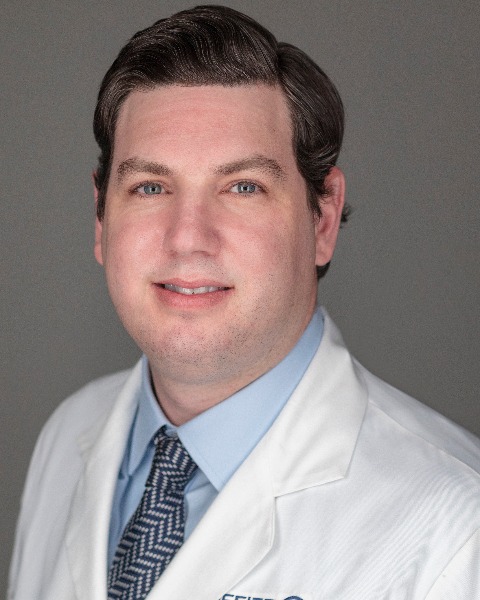Disparities in Surgical Oncologic Care
E167: Factors Associated with Fragmented Care Among Rectal Cancer Patients: Does Where You Live Matter?

Tanay Sorathia, BS
Graduate Student
Columbia University, Mailman School of Public Health, Department of Epidemiology, United States
Tanay Sorathia, BS
Graduate Student
Columbia University, Mailman School of Public Health, Department of Epidemiology, United States
Tanay Sorathia, BS
Graduate Student
Columbia University, Mailman School of Public Health, Department of Epidemiology, United States- EJ
Esther Jean-Baptiste, MPH
NTRO Research Study Manager
Moffitt Cancer Center, Department of Cancer Epidemiology, United States - AB
Amanda Bloomer, MA, CHDA
Research Project Specialist Sr.
Moffitt Cancer Center, Department of Cancer Epidemiology, United States - GR
Gazelle Rouhani, MPH
Doctoral Student
University of Miami Miller School of Medicine, Department of Epidemiology and Public Health, United States - GT
Gillian Trujillo, BS
Supervisor
Moffitt Cancer Center, Non-therapeutic Research Office, United States - RC
Rachel Carmella, MPH
Research Services Project Coordinator
Moffitt Cancer Center, Non-therapeutic Research Office, United States - JL
Julaxis Love, BS
Research Data Coordinator
Moffitt Cancer Center, Non-therapeutic Research Office, United States - MG
Maria Gomez, MPH
Research Data Analyst
Moffitt Cancer Center, Non-therapeutic Research Office, United States - CU
Cornelia M. Ulrich, MS, PhD
Chief Scientific Officer and Executive Director
Huntsman Cancer Institute, Department of Population Health Sciences, United States - CL
Christopher I. Li, MD, PhD
Research Full Professor
Fred Hutchinson Cancer Research Center, Public Health Sciences Division, United States - BG
Biljana Gigic, PhD
Scientist
University of Heidelberg, Department of General, Visceral and Transplantation Surgery, United States - JF
Jane C. Figueiredo, PhD
Associate Professor
Samuel Oschin Comprehensive Cancer Institute, Cedars-Sinai Medical Center, Department of Medicine, United States 
David Shibata, MD, FACS, FSSO, FASCRS
Professor and Chair of the Department of Surgery
University of Tennessee Health Science Center, Department of Surgery
Memphis, TN, United States- AT
Adetunji T. Toriola, MD, PhD, MPH
Associate Professor
Washington University School of Medicine in St. Louis, Department of Surgery, United States 
Seth I. Felder, MD
Colon and Rectum Surgeon
H. Lee Moffitt Cancer Center and Research Institute, United States- ES
Erin M. Siegel, PhD, MPH
Principal Investigator
Moffitt Cancer Center, Department of Cancer Epidemiology and Department of Gastrointestinal Oncology, United States - AS
Amalia Stefanou, MD
Surgical Oncologist
Moffitt Cancer Center, Department of Gastrointestinal Oncology, United States
ePoster Abstract Author(s)
Submitter(s)
Author(s)
Methods: Moffitt ColoCare Study patients with stage II and III rectal or rectosigmoid cancer who received multimodal treatment were included in the study. Fragmented care was designated if neoadjuvant or adjuvant treatment other than surgery was received at an external facility. Patients were assigned an ADI percentile ranking based on their 9-digit zip code and stratified into low ADI (range 1-50) and high ADI (range 51-100). Logistic regression models were used to determine the crude and adjusted association between ADI and fragmented care.
Results:
The study sample consisted of 101 patients, of which 45.5% (n = 45) had a high ADI, 59.6% (n = 59) were male, 48.5% (n = 48) had typical onset of cancer (between the ages 50 and 64), and 89.9% (n = 89) were non-Hispanic white. 56.4% (n = 57) of the patients received fragmented care. In univariate analysis, patients with fragmented care had different insurance types compared to those without fragmented care (p < 0.01). In contrast, age, gender, BMI, race/ethnicity, marital status, cancer stage, comorbidities, smoke status, and cancer type were not significantly associated with fragmented care. After adjusting for the covariates used in the univariate analysis, the odds of receiving fragmented care for patients with a high ADI was 0.34 (95% CI: 0.14 - 1.09; p = 0.07), indicating a trend that those who reside in impoverished areas are less likely to receive fragmented care.
Conclusions: Fragmented care is prominent among rectal cancer patients who receive multimodal treatment. Our study identified a trend between ADI and fragmented care. Insurance status was found to be associated with fragmented care, which may indicate that insurance could impact continuous care for rectal cancer treatment. Factors including distance traveled to a facility and a larger, diverse sample should be considered in future analyses incorporating multi-site data to test the association between ADI and the receipt of fragmented care.
Learning Objectives:
- Upon completion, participants will be able to describe the significance of fragmented care among rectal cancer patients who receive multimodal treatment.
- Upon completion, participants will be able to list the potential predictors examined in relation to fragmented care in rectal cancer treatment.
- Upon completion, participants will be able to explain the association (or lack thereof) between socioeconomic status and fragmented care in the context of rectal cancer treatment.
